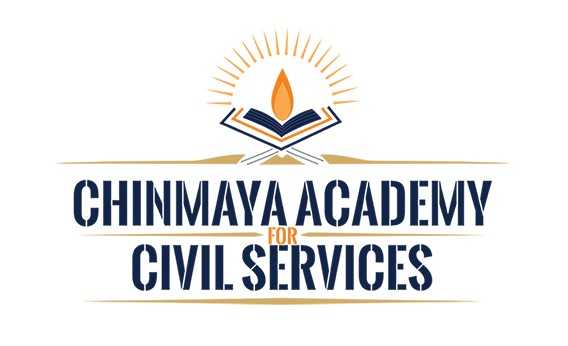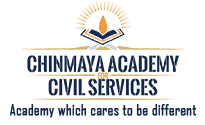IAS Training Centre & Its Prep Work
Ask any IAS Academy in Chennai or any other metropolitan in the nation and they will unequivocally answer one thing. Prep work is the key to successfully clearing the IAS exam. Good teachers, hard work, and passion for the civil services will take you to a certain level. But, to cross it, one needs books and materials that are par excellence. We advice all our students to begin with subject wise notes that are detailed and structured. Then to move onto questions papers of previous years, mock test of Prelims and then UPSC mains mock tests.
Top IAS Coaching In Chennai Approved UPSC Materials
Mock tests and last year’s questions papers are a good way to become familiar with the standards of a civil exam. Most of the top IAS coaching centers train their students and assess their level of understanding with the past question papers. But books along with other UPSC materials are vital for proper learning. We comprehend that not many students can afford to buy every book that is recommended. Therefore, we list down some free books that can be downloaded like:
- Pratiyogita Darpan Magazine
- NCERT Books
- IGNOU Books
- Kurukshetra Magazine
- Yojana Magazine
These books and materials will give just a gist of the syllabus. To actually get the full picture and supplement your coursework, there are some other civil services tomes that should be read thoroughly. For any aspirant who is serious about clearing one the toughest exam in the country the following are a must:
- School and Graduation Text Books of NCERT, NIOS or IGNOU
- Online UPSC Study Materials available at government websites like PIB
- Standard IAS Books for Civil Services Exam, a good option is Laxmikanth for Indian Polity.
- Newspapers and Magazines like The Hindu, The Times, etc.
IAS Academy Referenced UPSC Materials Essential For Prelims
 If a student has given even a cursory glance at the books and materials listed above, then the question ‘which books are needed to pass IAS?’ will be more explicit. To further clear any doubts an aspirant may have we cultivated a list that is divided phase wise. There is a section essential for prelims and then a category for the mains exam. The entire list was created after taking input from past toppers.
If a student has given even a cursory glance at the books and materials listed above, then the question ‘which books are needed to pass IAS?’ will be more explicit. To further clear any doubts an aspirant may have we cultivated a list that is divided phase wise. There is a section essential for prelims and then a category for the mains exam. The entire list was created after taking input from past toppers.
For the UPSC Prelims the books listed below are vital. They cover the entire syllabus and it is recommended that aspirants take complete benefit of them. The books can be bought online or at a typical store. We have divided the books as per subject to make it easier for the student.
- India Year Book (Current Affairs)
- Manorama Yearbook (Current Affairs)
- Current Affairs Capsule (Current Affairs)
- Certificate Physical and Human Geography – Goh Cheng Leong (Geography)
- Geography of India – Majid Husain. (Geography)
- Oxford School Atlas – Oxford (Geography)
- History Of Modern India – Bipan Chandra (History)
- India’s Ancient Past – R.S. Sharma (History)
- History Of Medieval India – Satish Chandra (History)
- India’s Struggle For Independence – Bipan Chandra (History)
- The Wonder That Was India – A.L. Bhasham. (Culture)
- Indian Art and Culture – Nitin Singhania (Culture)
- Indian Polity for Civil Services Examinations – M. Laxmikanth. (Polity)
- Indian Economy – Ramesh Singh. (Economy)
- Economic Survey (Economy)
- Science and Technology in India – TMH (Science and Technology)
- Environmental Studies: From Crisis to Cure – Rajagopalan (Environment)
- Environment for Civil Services Prelims and Mains – Khuller (Environment)
- Analytical Reasoning – M. K. Pandey (Analytical Reasoning)
- Verbal & Non-Verbal Reasoning – R. S.Aggarwal (Reasoning)
- CSAT Paper – 2 Manual by MHE or CSAT-II by Arihant
- NCERT Books Set for UPSC Exam
UPSC Material For Mains By Renowned IAS Coaching Centre
In Chennai, the best providers for IAS Coaching rely on subject matter experts to reach the syllabus. The Course Books and materials framed for Main exams can overlap with books recommended for the Prelims as the syllabus overlap. Besides the books listed above some other material that every student should study are given below. Again, we have divided them as per subject for easier access.
- Governance in India for CSE (Governance)
- Lexicon for Ethics, Integrity, and Aptitude (Ethics)
- IAS Mains General Studies – GS3 (Arihant Manual)
- Pax Indica – Shashi Tharoor (Foreign Policy)
- India and the World by Surendra Kumar (Foreign Policy)
- India’s National Security: A Reader (Internal Security)
- Challenges to Internal Security of India (Internal Security)


